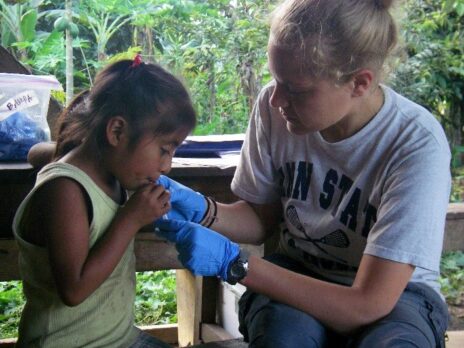Shuar Health & Life History Project
Impacts of cultural and economic changes on human health
The Shuar, an Indigenous population from the Amazonas region of southeastern Ecuador, were semi-nomadic, hunter-horticulturalists who lived in small scattered households. However, Shuar are currently experiencing a range of social, cultural, and economic changes associated with increased integration into a market-based economy. For example, many Shuar have access to modern infrastructure (e.g., roads, electricity), manufactured goods (e.g., radios, televisions), and formal employment and education systems.
Considering these rapid lifestyle changes, one of the main objectives of the SHLHP is to investigate the effects of economic development on individual- and community-level health outcomes among the Shuar.
Recent Research
Recent studies by the SHLHP team demonstrate that factors associated with market integration have altered Shuar health patterns, particularly those associated with chronic disease risks, infectious disease, physical activity levels, immune function, and childhood growth and development. For example, a recent study demonstrates that Shuar from more market-integrated communities have higher total cholesterol levels compared to Shuar from remote villages. These disease risks appear to be linked to lifestyle and dietary factors, including increased consumption of processed foods in addition to changes in physical activity, subsistence strategies, and access to medical care.
Investigators
Dr. Melissa Liebert, a biological anthropologist at NAU, is one of the investigators on the SHLHP
Get involved!
Contact Dr. Liebert for more information about opportunities to volunteer on her work in the Human Biology and Health lab
Location & Dates
Research takes place in the summer in Ecuador and year-round in Dr. Liebert’s lab
Contact
Contact Dr. Leibert for more information
Learn more about the project at https://www.shuarproject.org/
Support
The SHLHP has been ongoing since 2005 and has been funding by national organizations such as the National Science Foundation, the Wenner Gren Foundation for Anthropological Research, and the LSB Leakey Foundation

